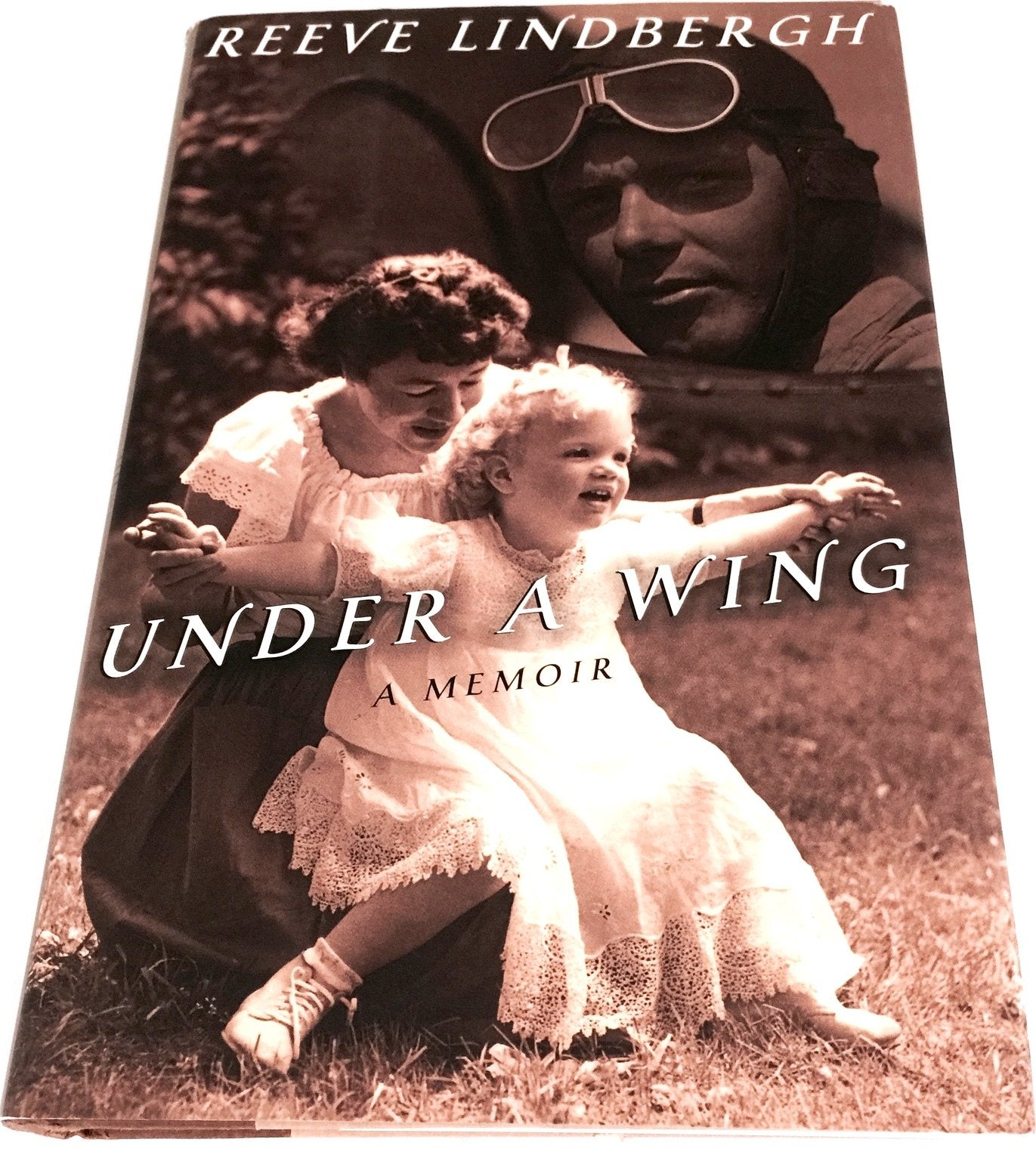Simon & Schuster
Under a Wing: A Memoir
Couldn't load pickup availability
Title: Under a Wing: A Memoir
Author: Reeve Lindbergh
ISBN: 9780684807706
Publisher: Simon & Schuster
Published: 1998
Binding: Hardcover
Language: English
Edition: First Edition
Number of Pages: 224
Section: Biography & Autobiography | Personal Memoirs
Publisher Description: The world knew Charles Lindbergh as a daring aviator, Pulitzer Prize-winning author, and controversial isolationist in World War II; his wife, Anne Morrow Lindbergh, was also famous, the author of the bestselling "Gift from the Sea" and other books. But Reeve Lindbergh knew them as Father and Mother. Their celebrity status and the tragedy of their first child shadowed the Lindbergh family in ways that were often mysterious to the five surviving children. In this moving, deeply affecting memoir, the youngest of the children describes what it was like to grow up as a Lindbergh.
Charles Lindbergh was a stern, strong father who inspired both love and fear. As a pilot, he owed his life to careful preparation; he was methodical and exacting as a parent. He wrote lists of topics to discuss with each child (his "Downfall of Civilization" lecture addressed "air conditioning, television, politics, [and] Pop Art"). When he drove, he never exceeded the speed limit, and when he skied, he never advanced beyond the beginner slopes. He stressed self-reliance and independence, the virtues that had made him who he was. He tried to teach all his children to fly, and Reeve recalls a memorable flight that ended in an emergency landing and revealed her father's true character: "My father wasn't flying the airplane, he was being the airplane. That's how he did it. That's how he had always done it."
Anne Morrow, by contrast, was a gentler and more accessible parent. She encouraged her children to write, taught them to love nature, and would relax the rules in her husband's absence. Reeve writes movingly about the night her life and her mother's converged, when Reeve's first son died unexpectedly, and her mother urged Reeve to sit beside her infant's body. As the two women kept vigil together, Reeve realized that her mother had never had the opportunity to grieve in this way over the loss of her firstborn son. In a deeply moving chapter, Reeve writes about how the effects of several strokes have eroded her mother's mind, while her voice remains in the books that Reeve never read while growing up but treasures now for their revelations.
Reflecting on her parents, Lindbergh observes that they strengthened each other, both as parents and as writers. Fiercely protective of their children (for reasons the children never understood when young), they stressed the importance of family. She writes about how her family has been diminished by the recent loss of her closest sibling, her sister, Anne, to cancer.
Written with grace, charm, candor, and love, "Under a Wing" is heartfelt tribute to an extraordinary family.

